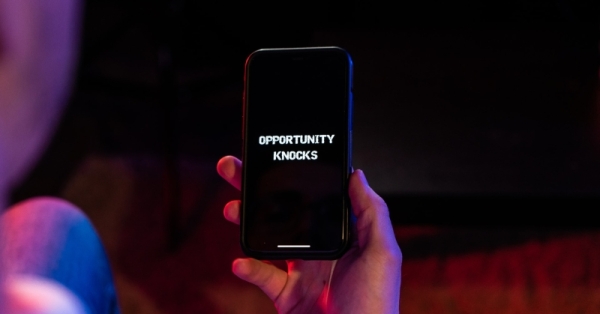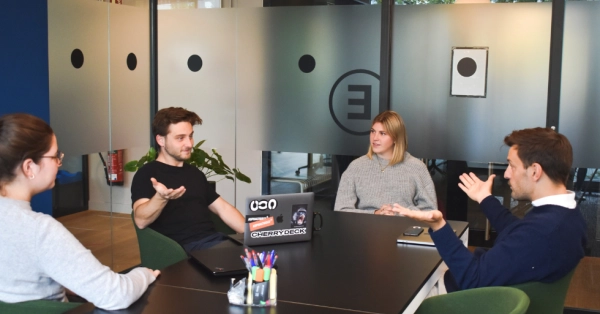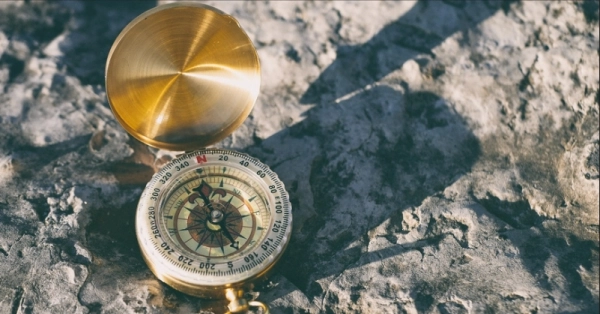We all need to find meaning in what we do – to know what the impact of our work is and that it is aligned with our own values. Here's how you find the "compass" you'll need during the difficult moments you'll go through as an entrepreneur and how resilience is built.

I invite you to reflect for a few minutes on why you do what you do every day. I'll start with a story from 70 years ago by Victor Frankl, a psychiatrist and Holocaust survivor, who wrote "Man's Search for Meaning" after leaving the camp.
It is the story of the fabulous life lessons he learned after staying in four concentration camps. The book has inspired millions of people. But you are probably wondering why this story could be relevant to an entrepreneur. Well, because in there, in the most terrible conditions, Frankl noticed an aspect of human nature that can radically change the way any entrepreneur looks at their business and even the way every one of us lives their life.
A strange phenomenon was happening in the camp. The healthiest most resilient people were those who were constantly looking for the meaning of that experience. They were trying to find the "why?" of that apparently meaningless context. They were trying to help others or they were hoping to survive because they had a project they wanted to finish after getting out of there. Frankl noticed that it was those people who were the most resilient and neuroscience proved him right years later. Frankl captured this interesting phenomenon in a single sentence: “Those who have a 'why' to live, can bear with almost any 'how'.
Years later, neuroscience and psychology proved that Frankl's claims were correct. People who define a meaning become more resilient in the face of life's vicissitudes. They have more intrinsic motivation, are more capable of bouncing back from failure and try again, are more optimistic and even physically healthier.
There is research that shows that these people have a better and stronger immune system. The path of entrepreneurship is full of uncertainties and requires a great deal of courage, mental flexibility, resilience, the ability to face failure, the emotional intelligence that allows you to effectively manage yourself and rally others around your ideas.
How do you define your "why"
Every entrepreneur has their own motivations for starting a business. Some had an idea they desperately wanted to turn into reality, others tries to escape an unfulfilling life with a secure but unmotivating job and sought freedom, and others defined a personal mission, a "why" of their own, a guiding beacon in the way they build, run and grow their business.
For those in this letter category, the company they are building is a way to fulfill a deeper "why". Having this "why" changes the way you make business decisions, and the mission becomes a filter that can help you choose more consciously which direction to go.
There are many ways to define this "why". I invite you to do a simple exercise and answer three personal questions:
-
What am I good at?
-
What do I do with pleasure?
-
What qualities do I have?
The answers to each of these questions become a list, and these three lists will have common points. There will be activities that will capitalize on your talent, that you will do with pleasure and put your qualities to good use.
Starting from this red thread that you can define by looking for the common points of the three lists, you can write a mission statement, a phrase that describes your personal WHY.
Another way to think about this phrase would be to ask yourself what you would like to say to your grandchildren many years from now when they ask you "Why did you live?" Who were you in your life, beyond what you did?". Your personal mission is not something you have to search for feverishly and if you are lucky, you will find it. It's something you can define if you take a moment and reflect on the things that are really important to you.
Once defined, you can then extrapolate it to your business: why does this business exist, what difference does it make in the world? Answering the questions can give you a sense of direction when you no longer know which way to go, but also the courage to overcome the challenges of the journey ahead.
About values in business
In addition to the WHY that fuels your motivation to get out of bed every morning, another essential element is knowing your personal values and, starting from them, defining what you want your company's values to be.
Values are not nice words you display on the walls of your office, as many people think. They are deep landmarks in every persons’ psyche.
Psychologists tell us that a persons’ first value system is already formed around the age of seven and it continues to evolve as we mature. Even if we are not aware of them, values underlie our beliefs, which in their turn deeply influence our every decision and every interaction with others.
As entrepreneur, knowing your values means defining your personal compass, knowing the boundaries you're not willing to cross, the compromises you're not willing to make, and the kind of people you're looking to bring on board.
It is essential to have a certain congruence at the level of values, this is the only way you can exist harmoniously together and have a healthy and sustainable business. In order to define your values, you might ask yourself what you need to feel truly fulfilled in an ideal business or what were the situations in your career where you felt completely motivated.
After answering these fundamental questions and making a list of values, you can define for yourself the benchmarks you need to stay true to yourself. This will help you later on, when you are successful and have to decide when and what to say "yes" or "no” to, when and how to grow the company, who you want to invite to work with you or how to react when things don't go your way.
If your business were a journey, your mission is the light you are heading to and gives you direction, and the values are the compass that always helps you choose the most appropriate path. I sincerely wish you define both and use them as inner landmarks to navigate this beautiful and sometimes frightening sea of possibilities and uncertainties.














